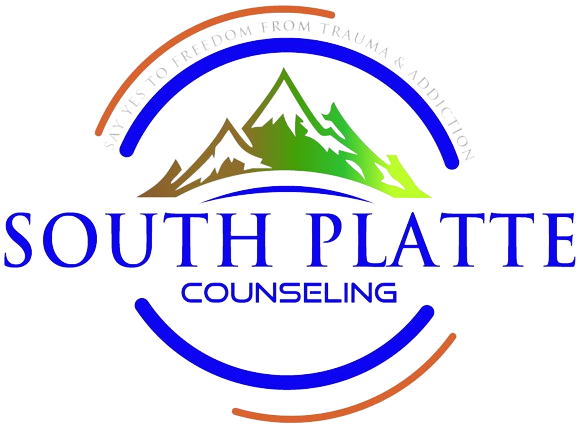Religious Trauma Therapy is often sought by people who feel an overwhelming sense of guilt, fear, or shame long after leaving a strict religious environment. You know that weird feeling when you do something your childhood church would have hated, and suddenly you’re hit with this wave of guilt and fear—even though you stopped believing that stuff years ago?
You know that weird feeling when you do something your childhood church would have hated, and suddenly you’re hit with this wave of guilt and fear? Even though you stopped believing that stuff years ago?
Or maybe you’ve been away from your religious community forever, but you still can’t shake this nagging feeling that you’re fundamentally broken. Like something terrible is going to happen because you’re not following the rules they drilled into you as a kid.
This might be religious trauma – and honestly, it may be way more common than people talk about. The problem is that research on the frequency of this occurrence is limited due to stigma and people’s reluctance to report it.
Religious trauma isn’t about hating religion or being anti-faith. It’s about the lasting psychological damage from harmful religious teachings, practices, or experiences that continue to mess with your head long after you’ve moved on.
What Religious Trauma Actually Looks Like
It’s Not About Being Anti-Religious
Let me clear something up right away. Having religious trauma doesn’t mean you hate all religion or think faith is stupid. We work with numerous people who still hold spiritual beliefs or attend different churches.
Religious trauma happens when religious teachings, practices, or communities mess you up psychologically. Maybe through fear-based messaging that terrified you as a kid. Maybe spiritual abuse from religious leaders who had too much power. Maybe rejection for being different and or being taught that your completely normal thoughts and feelings were sinful and made you a bad person.
The Guilt That Won’t Leave You Alone
One of the most significant signs we see? This persistent guilt about stuff that isn’t actually harmful.
You might feel guilty about having sexual thoughts or desires. (Which, by the way, is entirely normal.) Questioning religious teachings instead of just accepting them. Enjoying things that were forbidden in your spiritual community. Making decisions based on your own judgment rather than what religious authority figures told you to do.
This guilt is often way out of proportion to whatever you’re actually doing. Your logical brain knows that having a glass of wine or missing church isn’t the end of the world. But emotionally? It feels like you’re committing some terrible sin.
Fear-Based Thinking Patterns
Religious trauma often shows up as this persistent fear that just won’t leave you alone:
Divine punishment – You’re constantly worried that God is angry with you or that something bad will happen because you’ve done something “wrong.”
Eternal consequences – The fear of hell, judgment, or losing your salvation can be terrifying, even if you don’t intellectually believe in these concepts anymore.
Spiritual contamination – This feeling that you’re dirty, sinful, or fundamentally flawed in ways that can’t be fixed.
Loss of community – Fearing rejection, abandonment, or being cut off from family and friends if you don’t conform to religious expectations.
Common Signs and Symptoms
Anxiety Around Religious Topics
If you grew up in a strict religious environment, specific topics or situations might trigger intense anxiety. Walking past churches or religious buildings can make your heart race. Hearing religious music or seeing religious imagery brings up uncomfortable feelings. Being around very religious people can make you feel tense. Discussions about morality, sexuality, or spiritual topics are thought to be threatening.
This anxiety treatment often requires understanding the connection between your religious upbringing and your current mental health symptoms. Research shows that religious and spiritual struggles are associated with increased psychological distress and poorer mental health outcomes.
Difficulty with Authority Figures
Religious trauma can really screw with how you relate to authority in general. You might have trouble trusting your own judgment – like you always need someone else to tell you what’s right. Feel like you need permission to make basic decisions about your own life. Struggle with setting boundaries with authority figures because you learned that was “disrespectful.” Either rebel against all authority or submit too easily, with little middle ground to be found.
Problems with Sexuality and Body Image
Oh man, this is a big one. Many religious communities have rigorous teachings about sexuality, gender roles, and the body. This can lead to deep shame about your body or sexual feelings. Difficulty enjoying physical intimacy because you learned it was “dirty” or “sinful.” Confusion about gender identity or sexual orientation if you were taught there was only one “right” way to be. Feeling like completely natural human experiences are dirty or wrong.
It’s as if your brain is trained to feel guilty about being human.
Perfectionism and People-Pleasing
Religious environments often emphasize being “good” and following rules perfectly, which can create an intense fear of making mistakes. You’re constantly seeking approval from others because you learned love was conditional on being “good enough.” You have difficulty saying no or disappointing people. You feel like you have to earn love and acceptance instead of just receiving it because you’re worthy of it.
All-or-Nothing Thinking
Religious trauma often creates these black-and-white thinking patterns where things are either entirely correct or completely wrong. You’re either saved or damned. People are either good or evil. There’s no middle ground or nuance in moral decisions.
This kind of thinking makes life exhausting because nothing is ever just… okay.
The Impact on Relationships
Difficulty with Intimacy
Religious trauma can make it really hard to form close relationships. You might have learned that vulnerability is dangerous. Trust issues become a constant problem. You could have unrealistic expectations about relationships. Alternatively, you may struggle to express your authentic self because you have learned to conceal certain aspects of yourself.
Family Conflicts
If you’ve moved away from your family’s religious beliefs, family matters can become really complicated. We’ve seen this so many times – there’s this constant tension with family members that nobody wants to acknowledge directly. You end up hiding parts of yourself when you’re around them because it’s easier than dealing with the conflict.
The guilt about disappointing your family is crushing. And underneath it all, there’s this fear that they might actually reject you or cut you off entirely if they knew who you really are now.
Romantic Relationships
Religious trauma shows up in romantic relationships in ways that can surprise you. We had one client who couldn’t understand why physical intimacy felt so wrong and shameful, even with someone she loved. Turns out she’d been taught her whole life that her body was something to be ashamed of.
Or you might struggle with making decisions as equals if you learned that relationships have these rigid hierarchies where someone’s always in charge. Your values regarding gender roles or life choices may clash with those of your partner. And there’s often an anxiety about whether your partner will accept your beliefs—or lack thereof.
Special Considerations for LGBTQ+ Individuals
The Intersection of Identity and Faith
For LGBTQ+ people, religious trauma hits different. Research shows that LGBTQ+ people from religious backgrounds have higher rates of depression and suicidal thoughts, which honestly makes complete sense when you think about it.
Imagine growing up being told that who you are at your core is fundamentally wrong and sinful. That does severe damage to how you see yourself. We’ve worked with people who spent years trying to “pray away” their identity, hating themselves for feelings they couldn’t change.
The internalized shame takes a long time to unpack. You might intellectually accept yourself, but still feel a deep sense of wrongness. Dating becomes this minefield of anxiety because you were taught your natural attractions were evil. And trying to reconcile spirituality with your identity? That feels impossible sometimes.
The Coming Out Process
Leaving a religious community because you’re LGBTQ+ is particularly brutal because you often lose everything at once—your entire support system, your family, your friends – gone.
It shouldn’t have to be a choice between faith and authenticity, but that’s precisely what many religious communities force on people. You’re grieving the loss of your community while also trying to figure out who you are. It’s like rebuilding your entire life from scratch while dealing with rejection from everyone you’ve ever trusted.
We had one client tell us it felt like her family had died, except they were still alive and choosing not to love her. That’s heartbreaking.
How Religious Trauma Messes with Your Mental Health
Anxiety Disorders
Studies show that spiritual struggles and negative religious coping are linked to higher anxiety and depression. We frequently observe this in our practice.
There’s a generalized anxiety about making the “wrong” choices – as if every decision could have eternal consequences—and social anxiety about being judged or found out. Panic attacks triggered by religious reminders. Obsessive thoughts about sin and punishment that won’t leave you alone.
One client told me she couldn’t walk past a church without having a panic attack. Another couldn’t stop checking to see if he’d committed some unforgivable sin. The anxiety becomes this constant background noise in your life.
Depression
The isolation and shame that come with religious trauma often contribute to depression. You might feel hopeless about your future or worthiness. Isolation from community and support systems becomes overwhelming. There’s grief over lost beliefs, community, or family relationships. And it becomes tough to find meaning and purpose outside of religious frameworks when that’s literally all you’ve ever known.
Trauma-Related Symptoms
In some cases, religious experiences can cause trauma-related symptoms, though these may not always meet the full criteria for Post-Traumatic Stress Disorder. These symptoms might include intrusive thoughts or memories about traumatic religious experiences. Nightmares about punishment or rejection. Heightened alertness around religious triggers. Complete avoidance of anything related to your former religious community.
Mental health professionals often address these symptoms under frameworks like Complex PTSD, anxiety disorders, or adjustment disorders, depending on what you’re actually experiencing.
Healing from Religious Trauma
Understanding It’s Not Your Fault
The first step in healing is recognizing that religious trauma isn’t your fault. Period. You didn’t choose to be harmed by religious teachings or experiences. You were often a child or young person trying to make sense of the world with the information adults gave you. No one should blame you for believing what the people you trusted taught you.
Developing Critical Thinking Skills
Part of healing involves learning to think critically about the messages you received, which can be terrifying at first because you were probably taught that questioning was dangerous or sinful.
This means questioning whether certain teachings were actually helpful or harmful to you specifically. Learning to trust your own judgment and intuition, even when it feels scary. Developing a more nuanced understanding of morality and spirituality that isn’t black and white. Recognizing that you can choose what to believe based on your own experience and values, not what someone else demands you believe.
Rebuilding Your Identity
Religious trauma often involves having your identity completely defined by external religious authorities. Like, you might not even know who you are outside of those religious roles and expectations.
Healing requires discovering who you are when no one is telling you who to be. Exploring your own values, interests, and goals – stuff you might never have been allowed to consider before. Learning to make decisions based on your own needs and desires instead of what you think you “should” do. Developing self-compassion and self-acceptance is probably the most challenging part of all this, because you were taught you were fundamentally flawed.
Finding New Community
Losing a religious community can be absolutely devastating. Like, you’re not just losing beliefs – you’re losing your entire social structure, maybe your family, your identity, everything.
Building new support systems takes time, and it’s hard work. It might involve finding communities that accept you exactly as you are—connecting with others who’ve had similar experiences so you don’t feel so alone—maybe exploring different spiritual or philosophical communities if that interests you. Building relationships based on mutual respect and authenticity rather than shared beliefs or following the same rules.
When to Seek Professional Help
Signs You Might Need Religious Trauma Therapy
Look, you should consider seeking help if religious trauma is taking over your life. Suppose it’s interfering with your daily life and relationships in ways that feel unmanageable. Or if it’s causing persistent anxiety, depression, or other mental health symptoms that just won’t go away, no matter what you try.
Maybe it’s making it really difficult to make decisions or trust yourself about anything. Perhaps it’s preventing you from forming healthy relationships because you’re scared of intimacy or judgment. Or maybe it’s affecting your ability to work, study, or enjoy life because you’re constantly anxious or depressed.
What to Look For in a Therapist
When seeking religious trauma therapy (while not a formal diagnosis, this term describes therapeutic approaches for addressing religion-related psychological harm), you want someone who has experience with religious trauma specifically. Not just someone who says they work with “spiritual issues” but someone who really gets what you’ve been through.
You want someone who understands the complexity of faith, spirituality, and psychological healing. Someone who won’t try to convince you to return to religion OR to reject all spirituality – because that’s your choice to make, not theirs. Someone who respects your autonomy in determining your own beliefs and values. And if it’s relevant to your experience, someone who is genuinely affirming of diverse sexual orientations and gender identities, not just tolerant.
It Gets Better
Look, we know this sounds like something people say when they don’t know what else to say, but healing from religious trauma really is possible, even when it feels like you’re drowning in it.
We’ve worked with people who thought they were beyond help. People who’d been told they were going to hell for decades. People who lost their entire families when they came out or left their faith. And many of them have built incredible lives, finding love, creating new communities, and developing their own sense of spirituality if they so desired.
You’re not doomed to carry this pain forever. You’re not too damaged or too far gone. You deserve support and compassion while you figure this stuff out, not judgment or pressure to “get over it” quickly.
You’re Not Alone
Religious trauma affects millions of people from many different religious backgrounds and faith communities. It can occur in any spiritual context where harmful practices or teachings are present.
You’re not weird, broken, or fundamentally flawed, as you might have been taught. You’re a completely normal person who experienced something harmful and is working to heal from it. That actually takes incredible strength, even when it doesn’t feel like it.
We’ve seen some of the bravest people break down crying because they finally realized it wasn’t their fault. That’s not weakness – that’s healing.
Taking Your Time
Here’s something important: healing from religious trauma isn’t linear, and there’s no timeline you need to follow. Some days will be tough. Some aspects of your recovery may occur quickly, while others may take years to work through.
That’s completely normal and okay. Be patient with yourself. You’ve already survived so much.
If you’re struggling with religious trauma, anxiety, or questions about your identity and relationships, Elysia Adams at South Platte Counseling specializes in religious trauma therapy and provides affirming support for individuals navigating these complex issues. With expertise in anxiety treatment and a deep understanding of how religious trauma affects relationships and personal identity, Elysia offers compassionate, non-judgmental therapy that honors your experience and supports your healing journey. Available through both in-person sessions in Denver and secure telehealth across Colorado, contact South Platte Counseling to schedule a consultation and begin your path toward healing.



